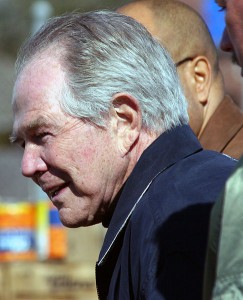Christian Coalition

Author’s Note: Institutions we have valued for generations are dwindling and falling by the wayside because we no longer have the finances to sustain them. In this second essay on financing seminary education (read the first HERE), I will address the socio-political and economic concerns that add to the complexity of the current crisis in theological education.
Democracy is based on the ideal of political equality. Each citizen is to have the same potential to influence what government does regardless of financial status. Markets, on the other hand, are directly related to real dollars. The consequent result for the U.S. democratic capitalistic structure is that while the rich and the poor are equal politically, they will never be equal economically. This combination could lead to two undesirable extremes: 1) mob rule by asset-less democratic majorities, or 2) oligarchic rule by the affluent. Thus, government’s role is to oversee the enterprise through the creation of regulatory policies that prevent runaway markets and taxation that assures a sustainable distribution of wealth and resources for the whole population. In order to achieve these goals, political theorists have developed models that focus on creating and sustaining a strong middle class with the result that the median voter will correct rising inequality in wealth as well as poor economic performance.

I first heard the term "evangelical" in the 1980s, about the time the Swaggarts and Bakkers were imploding. Christianity needed a new name for sane, intellectually sound faith.
"Born-again" had been sullied by the televangelists and worn out by Debbie Boone’s explanation of how she justified singing the lyrics to “You Light Up My Life.”
"Jesus Freak" had died with the Peace movement.
We needed another word to separate true Christians from fake ones; sheep from goats; serious believers from those who merely checked the “Christian” box on their driver’s license application because Jew, Muslim or Ekkankar didn’t apply.
(Sometimes I wonder if all the denominations in Christendom are merely a list of the nomenclature we’ve used to separate Us from Them.)
Some Christians have tried for a "school prayer" amendment to the Constitution ever since the early 1960s, when the Supreme Court banned state-sponsored religious activity in public schools. On June 4, the latest attempt—called the "Religious Freedom Amendment" by its sponsor, U.S. Rep. Ernest Istook (R-Okla.)—was the first such measure to reach a House floor vote in 27 years. Although it failed to get the two-thirds majority required for passage, the measure and the largely partisan vote (a majority of Republicans favored the measure, a majority of Democrats opposed) holds continuing significance for the U.S. political scene.
The Istook amendment is a case study in the muddy water that gets stirred up when true believers begin playing partisan politics. According to a New York Times report, House Speaker Newt Gingrich met with Christian Coalition Chair Pat Robertson soon after the amendment passed the Judiciary Committee. Gingrich renewed a 1994 pledge to religious conservatives to bring a school prayer amendment to a House vote. Besides the Istook amendment, Gingrich also agreed to push legislation eliminating funding for the National Endowment for the Arts and approving voucher-style tax deferrals for private religious school tuition, all before the November elections.
The Christian Coalition spent more than half a million dollars on behalf of the amendment, including radio ads in the districts of targeted members of Congress. It seems likely that votes against the Istook amendment by members of Congress up for re-election will be used against them by both secular conservatives and the Religious Right during the campaign season. Which means that a matter of faith and conscience will have been reduced to just another wedge issue in the struggle for political dominance.
What if, in front of the whole world, the U.S. pledged unequivocal U.S. support for the restoration of democracy in Haiti?
